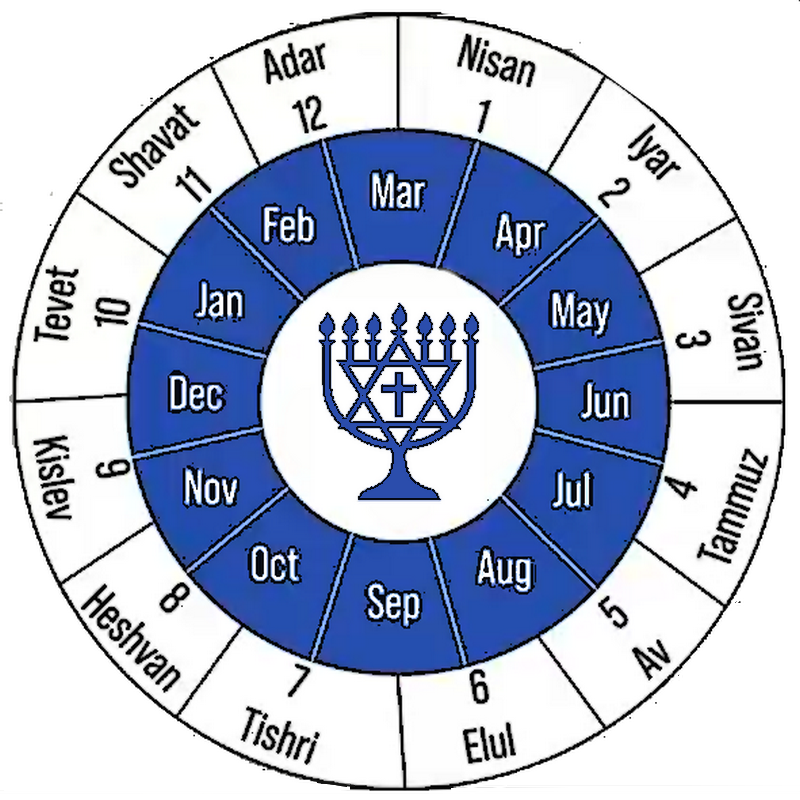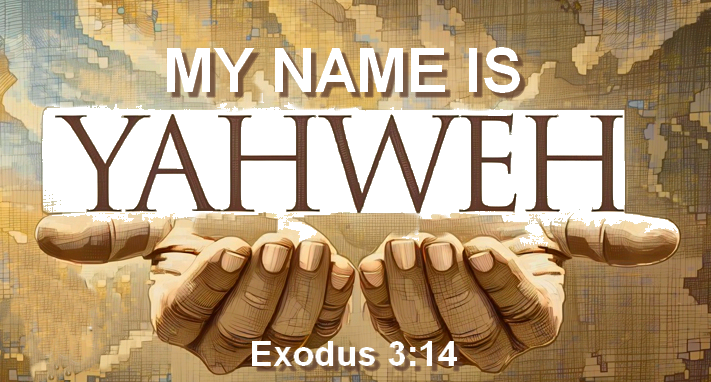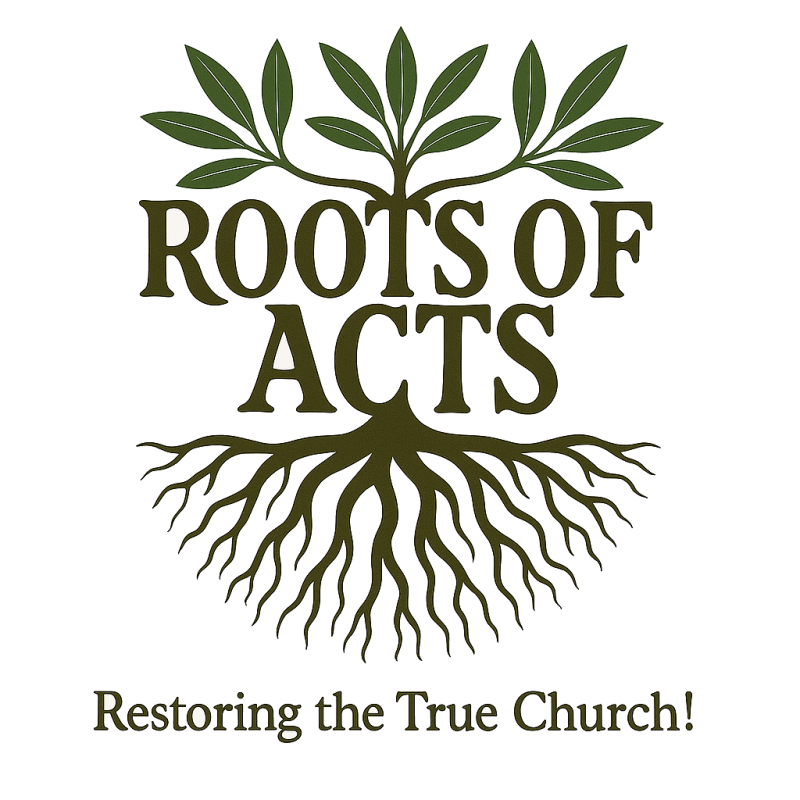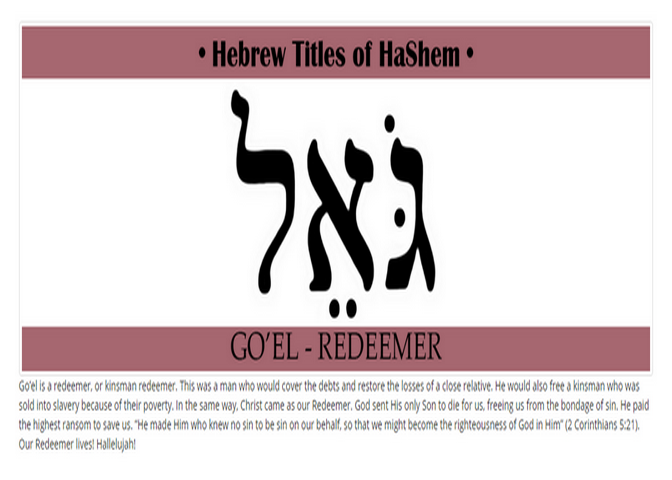

SPRING & FALL MOEDS
SPECIAL DIVINE APPOINTMENT TIMES WITH GOD!

ADAM'S 7000 YEAR CALENDAR!




The Biblical Birth of Yahshua
According to scholars trained in Hebrew Collage Bible studies, many within the Messianic community hold a specific understanding of the Messiah's birth timing based on careful calculation of the Hebrew calendar.
The Timing of Conception and Birth
These scholars propose that Miriam (Mary) conceived during the month of Tevet, which corresponds to December in the Gregorian calendar. Following a standard nine-month gestation period, this would place the birth of Yahshua the Messiah on the evening of Tishri 11, 3 B.C.
Significance of Tishri
Tishri holds particular importance as it is the first day of the seventh month in the Hebrew calendar as established in Scripture. This timing carries prophetic and symbolic weight within the biblical and the Hebrew festival calendar.
The Shepherds' Witness
On that evening in Tishri, the new moon became visible in the western sky shortly after sunset—a significant astronomical marker in Hebrew timekeeping. It was during this sacred moment that the shepherds witnessed the heavenly light and received the angelic announcement of the Messiah King's birth, as recorded in the Gospel accounts.
This understanding seeks to anchor the birth of Yahshua within the framework of Hebrew Scripture, calendar, and prophetic fulfillment, rather than the later Roman calendar traditions.
A Proposal for Biblical Celebration
Based on this chronology, some scholars propose a reorientation of how believers commemorate these sacred events:
Celebrating the Conception During Hanukkah
Rather than observing December 25th as the birth date, we might instead celebrate Miriam's conception of the Messiah during the eight days of Hanukkah in the month of Tevet (December). This celibration is called the Magnificat is about Miriam (Mary) conception. This would align the miraculous conception with the Festival of Lights—a fitting symbolic connection between the miracle of divine conception being "the light of the world coming into the world" and the miracle of the Temple's rededication. Isn't it interesting that both celibration have to do with "Divine Miraculous Light!"
Celebrating the Birth During Tishri
The actual birth of Messiah Yahshua would then be celebrated in the month of Tishri (September/October), aligning with the Hebrew calendar of celibration and the season when the shepherds would have been in the fields. This timing also coincides with the Fall feasts, which carry deep messianic significance in Hebrew thought.
This approach honors the Hebrew context of the Messiah's coming while maintaining celebration of both the miraculous conception and the blessed birth—each in their biblically appropriate season.
Shepherd Lambur

The Timing of the Moedim: Spring and Fall Festivals
The seven moedim are divided into two seasons:
Spring Moedim
1. Passover (Pesach) – A celebration of redemption.
2. Feast of Unleavened Bread (Hag HaMatzot) – A call to holiness, removing sin.
3. First Fruits (Yom Habikkurim) – Offering the first of the harvest.
4. Festival of Weeks (Shavuot, also known as Pentecost) – Marking the giving of the Law and covenant relationship.
Fall Moedim
1. Feast of Trumpets (Yom Teruah, or Rosh Hashanah) – A day of spiritual awakening and repentance.
2. Day of Atonement (Yom Kippur) – A solemn day of reconciliation with God.
3. Feast of Tabernacles (Sukkot) – A celebration of God’s provision and presence.
Messianic Fulfillment of the Moedim
The moedim not only commemorate Israel’s history but also point to the Messiah, Yahshua (Jesus), and the story of salvation.
Spring Moedim Fulfilled in Yahshua
1. Passover reflects the redemption brought by Yahshua’s sacrificial death. As the Lamb of God, He fulfilled Exodus 12:5-6, and John 1:29 declares, “Behold, the Lamb of God, who takes away the sin of the world!”
2. Unleavened Bread symbolizes the removal of sin, fulfilled through His sinless life and death. As 1 Corinthians 5:7 states, “Purge out the old yeast, that you may be a new lump, even as you are unleavened. For indeed Messiah, our Passover, has been sacrificed for us.”
3. First Fruits points to Yahshua’s resurrection as the “firstfruits of those who have fallen asleep” (1 Corinthians 15:20).
4. Pentecost is fulfilled in the giving of the Holy Spirit, as promised in Acts 2. This corresponds to the giving of the Law at Sinai and the sealing of a covenant relationship. Ephesians 1:13 explains, “In him you also… were sealed with the promised Holy Spirit.”
The Fall Moedim and Yahshua’s Return
While the Spring festivals have been fulfilled, the Fall moedim point to Yahshua’s second coming. They anticipate the completion of God’s redemptive plan:
-
The Feast of Trumpets will herald His return, as foretold in 1 Thessalonians 4:16: “For the Lord himself will descend from heaven with a shout, with the voice of the archangel, and with God’s trumpet.”
-
The Day of Atonement will bring final reconciliation for all who believe, fulfilling Zechariah 12:10: “They will look to me whom they have pierced.”
-
The Feast of Tabernacles foreshadows the eternal dwelling of God with His people, as described in Revelation 21:3: “Behold, God’s dwelling is with people, and he will dwell with them.”
The Significance of the Moedim Today
For Christians/Messianics, the moedim are not just traditions but divine appointments. They are reminders of God’s promises and times to reflect on His holiness. For all who follow Yahshua (Jesus), they unveil the intricate plan of salvation and point to His ultimate return.
The moedim are not only part of Israel’s calendar—they belong to God’s eternal timeline. As Colossians 2:16-17 reminds us: “Therefore don’t let anyone judge you in eating, drinking, or in respect of a feast day or a new moon or a Sabbath day, which are a shadow of the things to come; but the body is Messiah’s.”
The moedim are a testament to the divine rhythm of God’s plan, revealing His intentionality, His perfect timing, and the steadfastness of His eternal promises. They call us to pause, reflect, and align our lives with His greater story of redemption—a story that weaves together the past, present, and future in a tapestry of hope and fulfillment. As we look to these appointed times, we are reminded that every moment in God’s calendar is not only sacred but also a signpost of His unchanging love and faithfulness.
.

WE HIGHLY RECOMMEND THIS BOOK ABOUT
THE NAMES AND TITLES OF HASHEM!

.

.

CHANGING THE NAME OF YAHSHUA

.





Knowning Him By His Name & Titles
THE NAMES OF GOD - THEIR IMPORTANCE - THEIR USE IN PRAYER...
In biblical times, a name did more than identify a person — it revealed character and attributes. Scripture uses many names for God, each one highlighting a facet of His nature or a promise to His people. The first name God uses for Himself in Scripture appears in Genesis 17:1, when He tells Abram, “I AM God Almighty” (El Shaddai). As we study these names—Yahweh, Elohim, El Shaddai, Adonai and others—we gain clearer, richer insight into who God is. Learning His names deepens our knowledge of Him, strengthens our trust in His promises, and transforms the way we relate to Him in worship, prayer, and daily life.
Advocate (1 John 2:1)
Almighty One (Revelation 1:8)
Alpha (Revelation 1:8)
Amen (Revelation 3:14)
Angel of the Lord (Genesis 16:7)
Anointed One (Psalm 2:2)
Apostle (Hebrews 3:1)
Author and Perfected of our Faith (Hebrews 12:2)
Authority (Matthew 28:18)
Beginning (Revelation 21:6)
Beloved Son of God (Matthew 3:17)
Bishop of Souls (1 Peter 2:25)
Branch (Zechariah 3:8)
Bread of Life (John 6:35,48)
Bridegroom (Matthew 9:15)
Carpenter (Mark 6:3)
Chief Cornerstone (Psalm 118:22)
Chief Shepherd (1 Peter 5:4)
The Messiah (Matthew 1:16)
Comforter (Jeremiah 8:18)
Consolation of Israel (Luke 2:25)
Cornerstone (Ephesians 2:20)
Dayspring (Luke 1:78)
Day Star (2 Peter 1:19)
Deliverer (Romans 11:26); (1 Thessalonians 1:10)
Desire of Nations (Haggai 2:7)
(The) Door (John 10:9)
Emmanuel (Matthew 1:23)
End (Revelation 21:6)
Everlasting Father (Isaiah 9:6)
Faithful and True Witness (Revelation 3:14, 19:1)
First Fruits (1 Corinthians 15:23)
Foundation (Isaiah 28:16)
Fountain (Zechariah 13:1)
Friend of Sinners (Matthew 11:19)
Gate for the Sheep (John 10:7)
Gift of God (2 Corinthians 9:15)
God (John 1:1)
Glory of God (Isaiah 60:1)
Good Shepherd (John 10:11)
Governor (Matthew 2:6)
Great High Priest (Hebrews 4:14)
Great Shepherd (Hebrews 13:20)
Guide (Psalm 48:14)
Head of the Church (Colossians 1:18); (Ephesians 1:22)
High Priest (Hebrews 3:1)
Holy One of Israel (Isaiah 41:14)
Holy Servant (Acts 4:29-30)
Horn of Salvation (Luke 1:69)
I Am (Exodus 3:14); (John 8:58)
Immanuel (Isaiah 7:14)
Indescribable Gift (2 Corinthians 9:15)
Yhwh (Psalm 83:18)
Yahshua (Matthew 1:21)
Judge (Acts 10:42)
King of Israel (Matthew 27:42)
King of Kings (1 Timothy 6:15); (Revelation 17:14, 19:16)
Lamb of God (John 1:29)
Last Adam (1 Corinthians 15:45)
Life (John 11:25)
Light of the World (John 8:12); (John 9:5)
Lion of the Tribe of Judah (Revelation 5:5)
Lord of All (Philippians 2:9-11)
Lord of Lords (1 Timothy 6:15); (Revelation 19:16)
Master (Matthew 23:8)
Mediator (1 Timothy 2:5)
Messiah (John 1:41)
Mighty God (Isaiah 9:6)
Mighty One (Isaiah 60:16)
Morning Star (Revelation 22:16)
Nazarene (Matthew 2:23)
Omega (Revelation 1:8)
One Who Sets Us Free (John 8:36)
Our Hope (1 Timothy 1:1)
Passover Lamb(1 Corinthians 5:7)
Peace (Ephesians 2:14)
Physician (Matthew 9:12)
Potentate(1 Timothy 6:15)
Priest (Hebrews 4:15)
Prince of Peace (Isaiah 9:6)
Prophet (Mark 6:4); (Acts 3:22)
Propitiation (I John 2:2)
Purifier(Malachi 3:3)
Rabbi (John 1:49)
Ransom (1 Timothy 2:6)
Redeemer (Isaiah 41:14), (Job 19:25)
Refiner (Malachi 3:2)
Refuge (Isaiah 25:4)
Resurrection (John 11:25)
Righteousness (Jeremiah 23:6)
Risen Lord (1 Corinthians 15:3-4)
Rock (Deuteronomy 32:4); (1 Corinthians 10:4)
Root of David (Revelation 22:16)
Rose of Sharon (Song of Solomon 2:1)
Ruler of God’s Creation (Revelation 3:14)
Sacrifice (Ephesians 5:2); (1 John 4:10)
Savior (2 Samuel 22:47); (Luke 1:47, 2:1)
Second Adam (1 Corinthians 15:47)
Seed of Abraham (Galatians 3:16)
Seed of David (2 Timothy 2:8)
Seed of the Woman (Genesis 3:15)
Servant (Isaiah 42:1)
Shepherd (1 Peter 2:25)
Shiloh (Genesis 49:10)
Son of David (Matthew 15:22)
Son of God (Luke 1:35)
Son of Man (Matthew 18:11); (Luke 19:10)
Son of Mary (Mark 6:3)
Son of the Most High (Luke 1:32)
Stone (Isaiah 28:16)
Sun of Righteousness (Malachi 4:2)
Supreme Creator Over All (Colossians 1:16-17)
Teacher (Matthew 26:18)
True Vine (John 15:1)
Truth (John 8:32; 14:6)
Victorious One (Revelation 3:21)
Way (John 14:6)
Wonderful Counselor (Isaiah 9:6)
Word (John 1:1)
THE HEBREW NAMES OF GOD
Seeing something from a fresh perspective draws us in. Unfamiliar words make us pause—slowing us down instead of letting us skim past. The Hebrew names of God open new ways to know Him: familiar ones like Abba or El Shaddai and others you may not have met, such as Elohenu Olam. Read through these 81 names. When one captures your attention, read its translation and then the Scripture it points to in context. Ask God what He wants to reveal about Himself through that name and journal what you sense on your heart. May this practice deepen your intimacy with God.
‘Ab– “Father” (Psalm 68:5)
Adonai – “Master Over All” (Deuteronomy 3:24)
El Bethel – “The God of the House of God” (Genesis 35:7)
El Elohe Yisrael – “The Mighty God of Israel” (Genesis 33:20)
El Elyon – “The Most High God” (Daniel 3:26)
El Emunah – “The Faithful God” (Deuteronomy 7:9)
El Hakabodh – “The God of Glory” (Psalm 29:3)
El Hayyay – “God of My Life” (Psalm 42:8)
El Kanna – “Jealous God” (Exodus 20:5)
El Khai - "The Living God" (Jeremiah 10:10; Psalm 42:2; Hebrews 9:14; 1 Corinthians 3:16
El Nekamoth – “God that Avenges” (Psalm 18:47)
Eli Maelekhi – “God My King” (Psalm 68:24)
El Rai – “God Sees Me” (Genesis 16:13)
El Sali – “God, My Rock” (2 Samuel 22:47)
El Shaddai – “Almighty God” (Genesis 17:1)
El Simchath Gili – “God My Exceeding Joy” (Psalm 43:4)
Elohe Tishuathi – “God of My Salvation” (Psalm 51:14)
Elohe Tsadeki – “God of My Righteousness” (Psalm 4:1)
Elohe Yakob – “God of Jacob” (Psalm 20:1)
Elohei Chasdi – “God of my Kindness, Goodness, and Faithfulness” (Psalm 59:17)
Elohei Haelohim – “The God of gods” (Deuteronomy 10:17)
Elohei Marom – “God of Heights” (Micah 6:6)
Elohei Mikkarov – “God Who is Near” (Jeremiah 23:23)
Elohei Ma’uzzi – “God of My Strength” (2 Samuel 22:33)
Elohei Tehillati – “God of My Praise” (Psalm 109:1)
Elohenu Olam – “Our Everlasting God” (Psalm 48:14)
Elohim – “The Strong, Creator God” (Genesis 1:1, 2)
Elohim Bashamayim – “God in Heaven” (Joshua 2:11)
Elohim Chaseddi – “The God of My Mercy” (Psalm 59:10)
Elohim Chayim – “The Living God” (Joshua 3:10)
Elohim Kedoshim – “Holy God” (Joshua 24:19)
Elohim Machase Lanu – “God Our Refuge” (Psalm 62:8)
Elohim Ozer Li – “God My Helper” (Psalm 54:4)
Elohim Shophtim Ba-arets – “God that Judges in the Earth” (Psalm 58:11)
Elohim Tsebaoth – “God of Hosts” (Psalm 80:7)
Ehyeh asher Ehyeh – “The Eternal, All-Sufficient God” (Exodus 3:14)
Esh Oklah – “A Consuming Fire” (Deuteronomy 4:24)
Go’el – “Kinsman Redeemer” (Exodus 15:13)
Immanuel – “God With Us” (Isaiah 7:14)
There are NO “J” in the Hebrew Language
There are No Names of “God” with “J.”
YHWH – “Lord, Master and Relational God” (Genesis 2:4)
YHWH Adon Kol Ha-arets – “The LORD, the Lord of All the Earth” (Joshua 3:11)
YHWH Chereb – “The LORD…the Sword” (Deuteronomy 33:29)
YHWH El Elohim – The LORD God of gods, The LORD, Mighty, Powerful, Strong One Over All” (Joshua 22:22)
YHWH El Elyon – “The LORD, the Most High God” (Genesis 14:22)
YHWH El Gemuwal – “The LORD God of Recompense” (Jeremiah 51:56)
YHWH Elohim – “The LORD God” (Genesis 2:4)
YHWH Elohim Ab – “The LORD God of Your Forefathers” (Joshua 18:3)
YHWH Elohim Tsaba – LORD God of Hosts” (Psalm 59:5)
YHWH Elohim Yahshua – “The Son of God” (Matthew 16:16)
YHWH Gibbor Milchamah – “The LORD Mighty in Battle” (Psalm 24:8)
YHWH Goelekh – “The LORD Thy Redeemer” (Isaiah 60:16)
YHWH Hashopet – “The LORD the Judge” (Judges 11:27)
YHWH Hoshiah – “O LORD Save” (Psalm 20:9)
YHWH Immeka – “The LORD is with You” (Judges 6:12)
YHWH Jireh – “The LORD Will Provide” (Genesis 22:14)
YHWH Kanna Shemo – “The LORD Whose Name is Jealous” (Exodus 34:14)
YHWH Machsi – “The LORD My Refuge” (Psalm 91:9)
YHWH Magen – “The LORD My Shield” (Deuteronomy 33:29)
YHWH Maginnenu – “The LORD Our Defense” (Psalm 89:18)
YHWH Malakh – “The Angel of the Lord” (Genesis 16:7)
YHWH Mauzzi – “The LORD My Fortress” (Jeremiah 16:19)
YHWH Mekaddishkem – “The LORD that Sanctifies You” (Exodus 31:13)
YHWH Ha-Melech – The LORD the King” (Psalm 98:6)
YHWH Mephalti – “The LORD My Deliverer” (Psalm 18:2)
YHWH Moshiekh – “The LORD Your Savior” (Isaiah 49:26)
YHWH Metsudhathi – “The LORD My High Tower” (Psalm 18:2)
YHWH Nissi – “The LORD My Banner” (Exodus 17:15)
YHWH Ori – “The LORD My Light” (Psalm 27:1)
YHWH Roi – “The LORD My Shepherd” (Psalm 23:1)
YHWH Rophe – “The LORD (our) Healer (Exodus 15:26)
YHWH Sal’l – “The LORD My Rock” (Psalm 18:2)
YHWH Shalom – “The LORD (our) Peace” (Judges 6:24)
YHWH Shammah – “The LORD Is There” (Ezekiel 48:35)
YHWH Tsaba – “LORD of Hosts” (1 Samuel 17:45)
YHWH Tsemach – “The Branch of the Lord” (Isaiah 4:2)
YHWH Tsidkenu – “The LORD Our Righteousness (Jeremiah 23:6)
Kadosh – “The Holy One” (Isaiah 40:25)
‘Or Goyim – “Light of the Nations” (Isaiah 42:6)
Peleh Yo’etz – “Wonderful Counselor” (Isaiah 9:6)
Ruach Elohim – “The Spirit of God” (1 Samuel 10:10)
Ruach Hakkodesh – “Holy Spirit” (Psalm 51:11)
Sar Shalom – “Prince of Peace” (Isaiah 9:6)
The Names of God [pop-ups. press to enlarge!]
Character & Attributes of God
At The Feet Of the Master, we show you how to pray the Names of God for your spiritual benefit. When doing so you will realize the depths of your covenant with Him.
Discover the Path to Discipleship!
Explore the transformative journey of becoming a disciple of Yahshua and hearing the voice of God. Join us in our mission to foster spiritual growth and meaningful community connections.


























